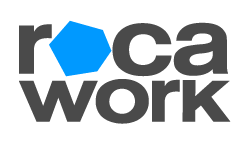Zendesk vs Salesforce: A Tale of Two Customer Experience Giants
In the evolving landscape of customer experience software, two titans stand out: Zendesk and Salesforce. Let's dive into what makes each platform unique and how they stack up against each other.
The Origin Stories
Zendesk emerged in 2007 as a humble help desk solution, founded by Mikkel Svane and his friends in Denmark. Their mission was straightforward: help businesses create better customer experiences. Starting as the underdog, Zendesk has grown into a versatile, user-friendly platform that serves enterprise clients like Disney, Netflix, and Tesco.
Salesforce, launched in 1999 by Mark Benioff, predates the modern customer experience era. Beginning as a CRM solution, it has evolved into a comprehensive ecosystem for customer management, earning its place as the dominant force in the CRM world.
Functionality Face-Off
Zendesk offers a streamlined customer support solution with:
Ticket management
Live chat capabilities
FAQ management
AI-powered bots
Social media integration
Customizable business rules
Salesforce, meanwhile, operates as a complete ecosystem featuring:
CRM functionality
Marketing automation
Sales pipeline management
Advanced analytics
Customer service components
Integrated communication (via Slack)
Price Points
Zendesk's pricing structure:
Starts at $19 for basic customer support
Can reach $269 for advanced features
Additional costs for AI features ($49/month)
Enterprise solutions can reach $300 per agent seat
Salesforce's pricing model:
Entry-level at $25 per agent
Full-featured solutions reaching $300-350
Enterprise-level pricing varies based on needs
The Customer Experience Factor
Both platforms excel at delivering customer experience solutions, but here's the crucial insight: the software alone isn't enough. Success in customer experience requires:
A clear strategy
Well-defined goals
Proper implementation
Skilled team members
Making the Choice
The decision between Zendesk and Salesforce shouldn't be about which is "better," but rather which better fits specific business needs:
Choose Zendesk if:
Customer service is your primary focus
You need an intuitive, quick-to-implement solution
You value straightforward user experience
Choose Salesforce if:
You need a comprehensive business solution
Sales is your primary focus
You require extensive customization options
You want an all-in-one platform
The Surprising Partnership
Interestingly, these giants can work together seamlessly. The Zendesk-Salesforce integration is one of the most robust on the Zendesk marketplace, allowing data to flow smoothly between systems. Many businesses successfully use Zendesk for customer service while leveraging Salesforce for sales management.
Final Thoughts
Remember: successful customer experience isn't about choosing the fanciest tool—it's about having the right strategy and selecting the tool that best supports that strategy. Start by understanding your customers' needs and building a roadmap before making your technology decisions.
Let’s get to know each other!
